By Type (5)
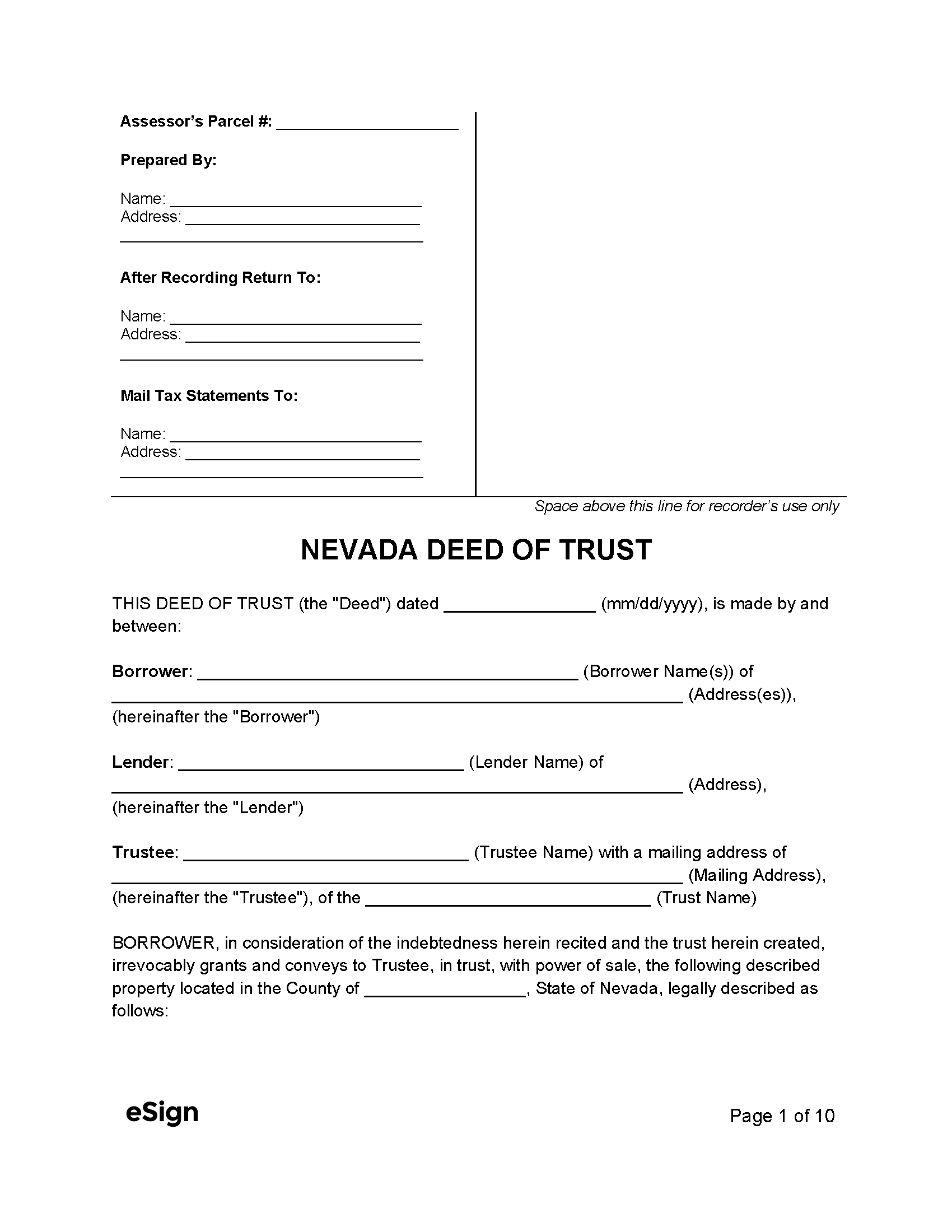 Deed of Trust – Used to transfer a property title to a trustee as collateral for a loan. Deed of Trust – Used to transfer a property title to a trustee as collateral for a loan.
|
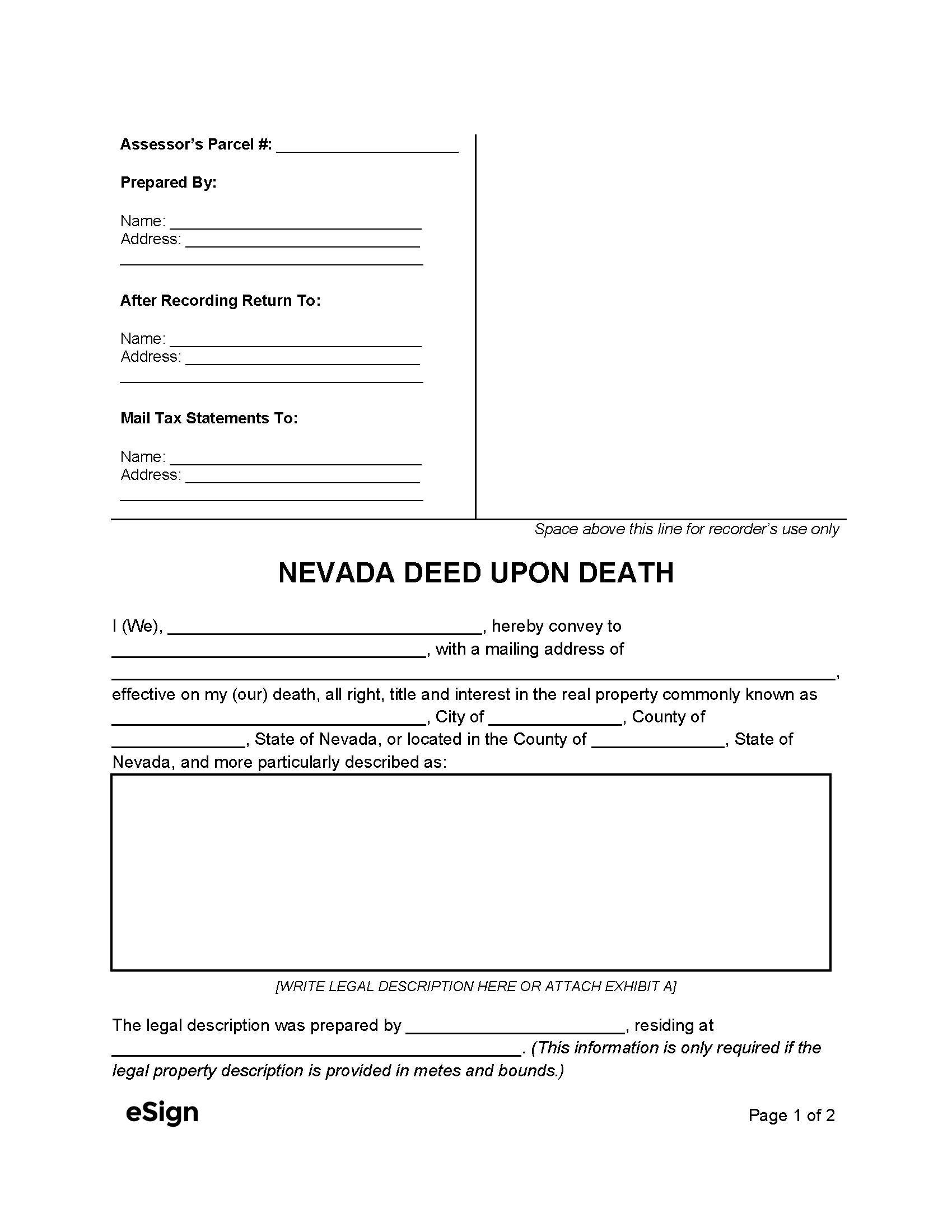 Deed Upon Death – Allows a beneficiary to inherit property upon the grantor’s death. Deed Upon Death – Allows a beneficiary to inherit property upon the grantor’s death.
|
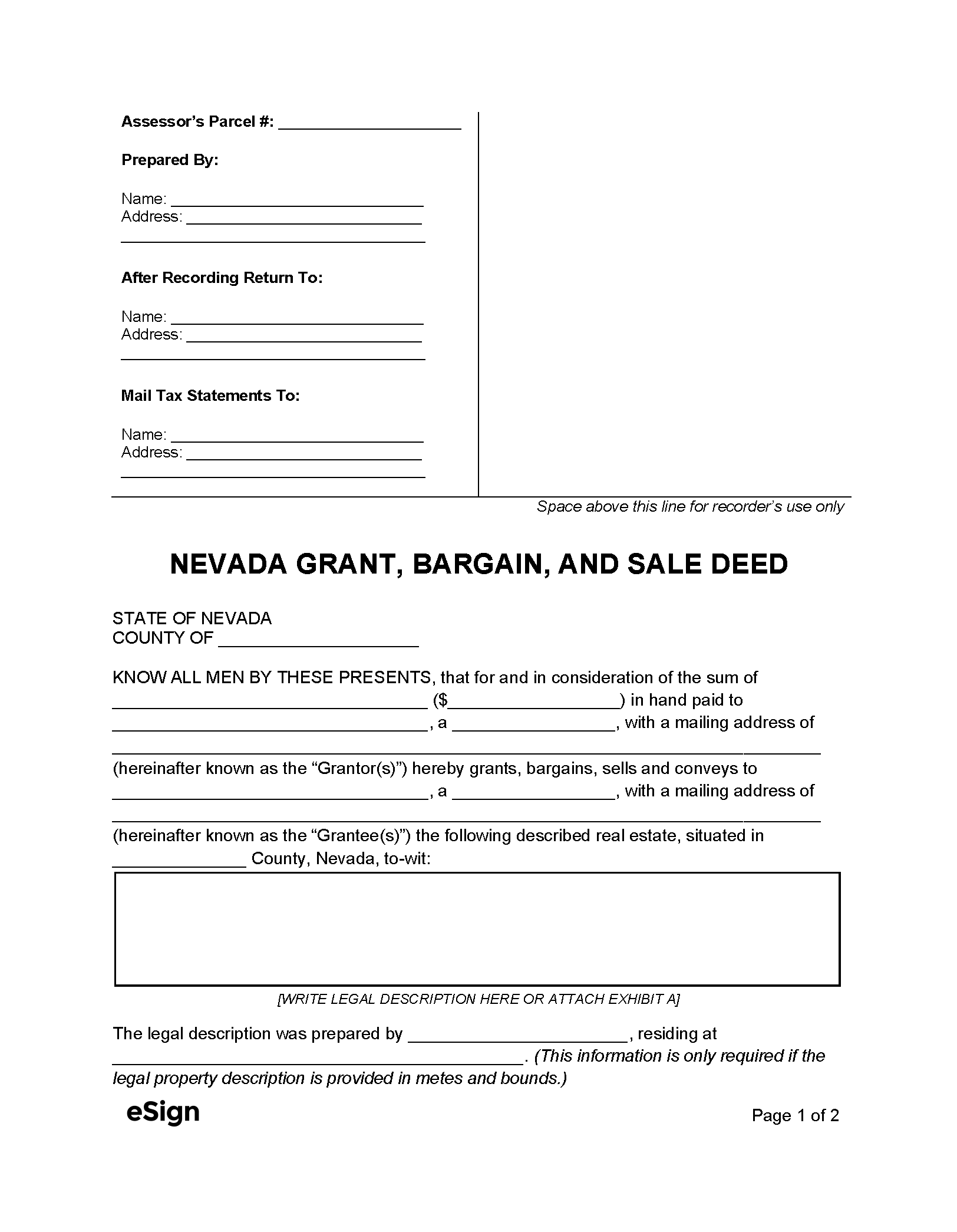 Grant, Bargain, and Sale Deed – Protects against title issues tied to the grantor’s ownership. Grant, Bargain, and Sale Deed – Protects against title issues tied to the grantor’s ownership.
|
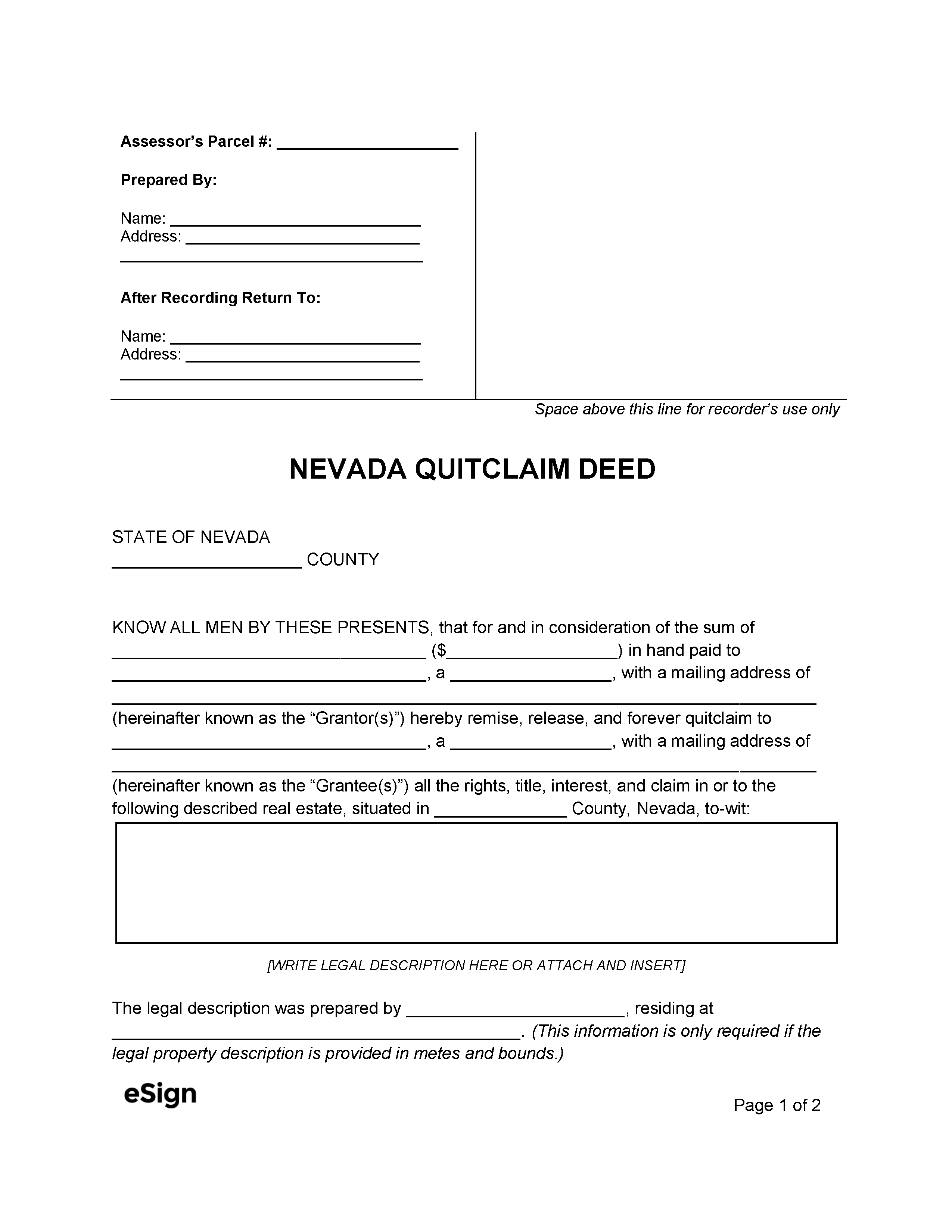 Quit Claim Deed – This deed transfers ownership without guaranteeing a clear title. Quit Claim Deed – This deed transfers ownership without guaranteeing a clear title.
|
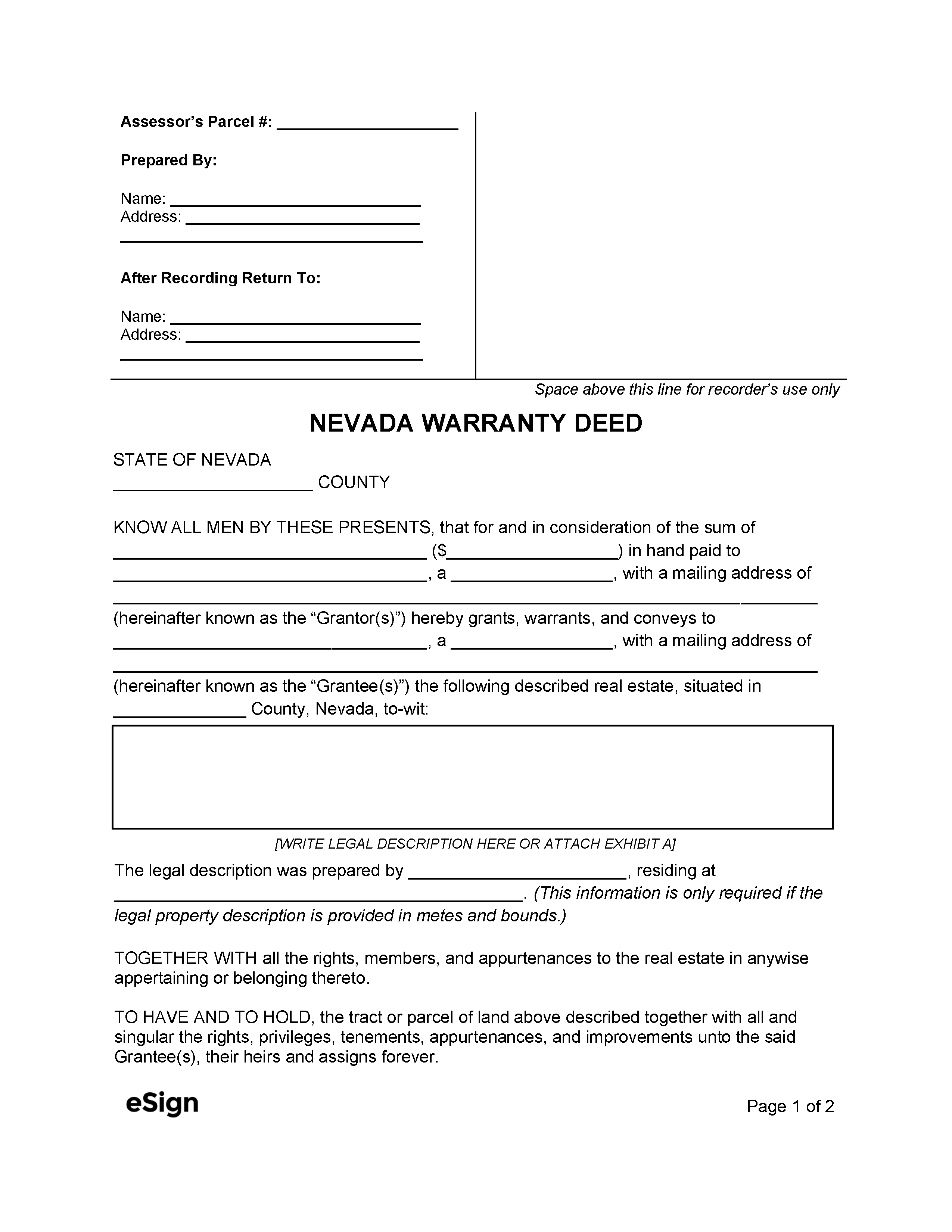 Warranty Deed – Offers full protection against title defects. Warranty Deed – Offers full protection against title defects.
|
Formatting
Paper – White, 20lbs, at least 8.5″ x 11″
Margins – 3″ x 3″ at the top right of the first page, 1″ everywhere else
Font – Black ink, not smaller than 10pt Times New Roman font[1]
Recording
Signing Requirements – A notary public must notarize the grantor’s signature.[2]
Where to Record – Deed must be filed with the County Recorder in the same county where the property is situated.[3]
Cost – Approximately $42 (as of this writing).[4]
Additional Forms
Recording Cover Page – Grantors are often required to complete a cover page, which they can obtain from the County Recorder.
Declaration of Value Form – Must accompany the deed at recording to declare the property’s value and the applicable transfer tax.[5]
